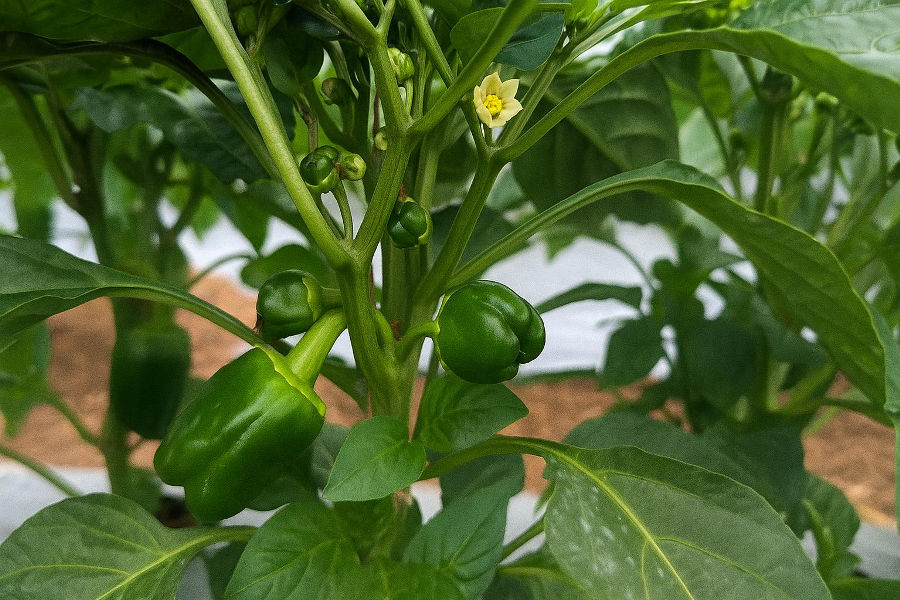Benefits of Short Internode in Capsicum Cultivation
Capsicum, commonly known as bell pepper, is a crop that demands careful management to achieve high yield and quality. One key factor that plays an important role in crop productivity is internode length. The internode is the space between two leaves or branches on the plant stem. When internodes are short, it brings several advantages to the farmer.
1. Compact and manageable plant structure
Short internodes create a compact plant. Such plants are easier to manage, especially in polyhouse or shade-net conditions. They are better suited for high-density planting, allowing more plants to be grown in a given area without overcrowding.
2. More flowering points in less space
With short internodes, the plant produces more nodes per unit of height. Each node is a potential site for flowering. This means more chances of fruit formation, which directly improves yield per plant.
3. Better air circulation and sunlight exposure
Compact plants with controlled growth allow better movement of air and penetration of sunlight inside the canopy. This reduces the chances of fungal infections and supports healthy plant development.
4. Reduced risk of lodging
Short internode plants are stronger and more upright. They are less likely to bend or fall over during the fruiting stage, especially in the open field where wind and rain are common.
5. Ease in harvesting and spraying
Shorter plants with uniform height make it easier to carry out spraying and harvesting operations. This improves efficiency and reduces labor-related difficulties.
How to promote short internodes?
Short internodes can be encouraged through proper crop nutrition, especially with balanced use of calcium, potassium, and micronutrients. Certain specialty fertilizers and biostimulants also support compact growth without harming the plant.
